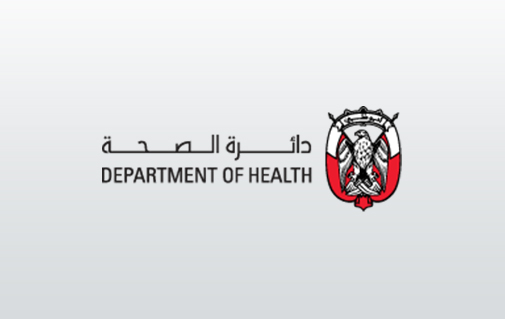News
Health Authority – Abu Dhabi Launches "Abu Dhabi Poison Prevention Week"

6 Dec, 2011: Abu Dhabi – The Health Authority – Abu Dhabi (HAAD), the regulatory body of the health care sector in the Emirate of Abu Dhabi, launched today "Abu Dhabi Poison Prevention Week", an initiative to increase awareness among residents on accidental poisoning incidents that may occur at home.
The initiative focuses on educating the public about the safe use and storage of household cleaning products, safe use of pesticides, and safe use of medicine.
According to global statistics most cases of poisoning are caused by household cleaners, such as cleaning materials, or medicines, cosmetics and personal care items. 89% of all cases of exposure to poisoning occur at home, 86.7% of the cases are unintentional poisoning, 75% of cases of poisoning involving the ingestion of a toxic substance, and 77% of all cases of poisoning are treated within the place in which they occurred, through advice and expert assistance by poison centers through the phone.
Dr. Jamal Al Kaabi, Director of Customer care and Corporate Communication said: "The launch of Abu Dhabi Poison Prevention Week is part of HAAD's responsibility towards the community. We aim to increase awareness and adoption of healthy living standards among the residents of the Emirate of Abu Dhabi."
In the Emirate of Abu Dhabi in 2010 and 2011, Poison and Drug Information Center (PDIC) at HAAD received 200 poison cases; 45% of cases resulting from the inappropriate use of drugs dispensed without a prescription (OTC), pesticides, detergents and household products.
The Center also received 27 cases of accidental exposure to pesticides (either by ingestion or by inhalation) originating in the Emirates of Abu Dhabi, Dubai and Sharjah. The pesticides were identified in 5 of the exposures, while the rest of the cases origin could not be determined; however, the clinical pictures alluded to organophosphate or phosphine gas poisoning.
Dr. Yasser Sharif, Head, PDIC at HAAD said: "The dangers of poison exposure exist even in your own home. That is why most non-fatal poisonings occur in children at home younger than 6 years of age. Mishandling of cosmetics, medicines, household cleaning products, and pesticides can also lead to serious poisonings."
"The campaign activities emphasize on the importance of calling the HAAD Poison and Drug Information Center at the national toll-free number 800-424 to increase public awareness in regards to proper ways in case of home poison exposures and guide them in simple first aid measures" Dr. Yasser added.
The Poison Prevention Week activities will be held at shopping malls in Al Ain from 8 – 10 December and Al Mushrif Mall from 15 – 17 December with children activity corners, where they can enjoy their time while learning.
The list of recommendations by HAADfor the safe use of pesticides includes:
- Verify the pesticide's company license. Call The Center of Waste Management- Abu Dhabi for the approved list of agencies.
- Be ready for emergencies. If the followings symptoms develop go to emergency room and do not wait until the next day; headache, dizziness, shortness of breath, weakness, sweating, nausea, vomiting...etc.
- Notify your landlord and neighbors wherever you apply pesticide.
- Ask about the active ingredient of the pesticide’s and if there is any special precautions.
For household cleaning products:
- Purchase well-packaged household products, preferably branded names.
- Never mix or transfer any household product to other containers, especially food or drink containers.
- Make sure your products are always in a locked room or cupboard. If you cannot do this, put them on high shelves.
- After use store the household products in their usual safe place.
For the safe use of medication:
- Tell the doctor about all the medication you take (including over-the-counter drugs).
- Ask your doctor about any possible side effects to watch for and report any that you experience
- Tell your doctor if you are pregnant, planning for pregnancy, or breastfeeding
- Try to use the same pharmacy to fill your prescriptions so that they can track possible drug interactions with previously prescribed medications
- Don’t share your medication with anyone for any reason
- Don’t crush or break tablets unless your doctor or pharmacist instructs you to do so.
- Don’t remove medication from its original container to another.
- Store your medication in a cool dry place ideally at room temperature or per manufacturer’s recommendations.
For more information on the campaign please visit: www.adppw.ae



 For an optimal experience please
For an optimal experience please